| Country: UK Genre: Electronic, Pop Style: New Wave, Pop Rock, Synth-pop Members:
| Haircut One Hundred are a British pop group formed in 1980 by Nick Heyward. The band had four UK Top 10 hit singles between 1981 and 1982, including "Favourite Shirts (Boy Meets Girl)" and "Love Plus One". But my favorite song is Fish in a bowl from their Paint and Paint album, and if I'm not forgotten the song also enter the Prambors Top 40 charts. I don't think many people know Haircut One Hundred, but some might remember Nick Heyward as he went solo. I'm proud as I have these 3 albums as my collection. Life is random, enjoy uncertainty. |
|
0 Comments
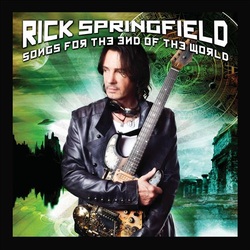 He's back and he's got a lot on his mind, hence the album title "Song for the end of the world". Buy online from Amazon: http://www.amazon.com/Songs-End-World-Rick-Springfield/dp/B008XNPLZ0 12 songs to enjoy. 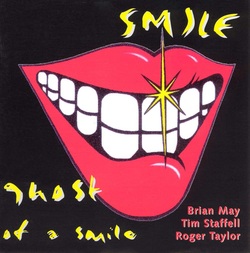 This post is inspired by listening Roger Taylor from my iPod, then I remember I also had an early days of Queen. And this is the story from http://www.allmusic.com. I enjoy listening my old collection, and waiting for my pre-order of newest Kiss album released this year (Monster) . http://itunes.apple.com/us/preorder/monster/id547650804. The story of Smile: Five years before the first Queen album was released, half of that future supergroup worked together in Smile, a hard rock outfit that played in the London and Cornwall area in the late '60s. Although the band never was able to commercially release any of their work during their 18-month existence, they did record six songs which finally saw domestic release in 1997 on the album Ghost of a Smile. Smile was formed at Imperial College in Kensington, London, in late 1968. Students Brian May (guitar) and Tim Staffell (bass, vocals) had previously worked together in the band 1984. After that group broke up, the two put an ad up on a school bulletin board looking for a "Ginger Baker/Mitch Mitchell-type drummer." Roger Taylor, who had previously sung lead vocals in the Reaction, was the best of those who auditioned and the new trio christened themselves Smile. Staffell designed a logo for the group which was a pair of large grinning red lips with glimmering white teeth and the band started gigging at Imperial College in October 1968. In early 1969, Smile supported such recently established acts as Pink Floyd and Yes and in February they even played a supporting gig at Royal Albert Hall in London. Focusing mostly on hard rock covers, the group would extend the songs they played to lengths of up to 20 minutes, changing tempos frequently. The group's reputation soon grew and Smile became Imperial College's house band. In the Cornwall area, where Roger Taylor grew up, the band also developed a solid fan base. At one of their gigs in April 1969, Smile were approached by an A&R man from Mercury Records America who offered them a deal to record a single. Lacking much original material, the band chose to record a Tim Staffell-penned track called "Earth," and backed it with "Step on Me," which had its birth with 1984. The group put down the tracks in June 1969, but Mercury ended up only pressing promotional copies of the single. However, the label retained enough interest in the group to book more studio time for them in September 1969. At De Lane Lea studios, Smile laid down three more songs, all originals, including "Doin' Alright," which was later performed by Queen. However, Staffell was beginning to lose interest in the group and became more attracted to American music. Meanwhile, May's astronomical studies at college were taking him away from the band for weeks at an end. Staffell left Smile in early 1970 and was replaced as vocalist by the flamboyant Freddie Mercury, who had been hanging around with the group for a couple years while also working in his own bands. Smile also added a new bass player, Mike Grose, and continued to perform sporadic gigs. Mercury had definite ideas of the directions where the band should go and by July 1970, Smile had been renamed Queen. Staffell later joined Humpty Bang who released on single, "Don't Be Too Long," and performed on Top of the Pops. He later joined the bands Outside and Morgan. The first commercial release of Smile material was a Japanese compilation that came out on record in 1982. Ghost of a Smile, released in 1997, finally saw the band's complete output released on an easily accessible compact disc. 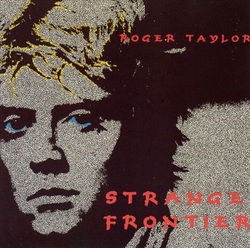 My album of the week from my Club80s collection (read My Classic 80GB iPod) Before drumming with Queen, Roger Taylor was the drummer in the late '60s hard rock band, Smile, along with future Queen guitarist Brian May. In 1970, that group morphed into Queen with the addition of flamboyant lead singer Freddie Mercury. Over the next decade, Taylor would generally write one or two songs per Queen album, usually singing on his own compositions. After Freddie Mercury died of AIDS in 1991, Taylor returned to a solo career, releasing Happiness? in 1994. It's first single, "Nazis 1994," was banned by Radio 1 and several stores as it was feared it would lead to neo-Nazi riots. Nonetheless, "Nazis 1994" became Taylor's first hit single in England and was followed by two other Top 40 U.K. hits, "Happiness" and "Foreign Sand." Electric Fire, which saw Taylor add some slight electronica elements to his rock sound, was released in 1998. With Strange Frontier, Roger Taylor seemed to try and cast himself as a British version of Bruce Springsteen, writing a set of songs that were similar to the gutsy and anthemic work of the American rock hero. The similarity went as far as the lyrics, many of which focused on working-class politics. Taylor even throws in a Springsteen cover, "Racing in the Street," for good measure. The differences between Taylor's music here and Springsteen's lie both in Taylor's production, which added some artsier ideas such as the symphonic break in "Killing Time," and in his vocals, which stray more into melodramatic territory than Springsteen ever has. For the most part, the concept works. The album is far from original, but Taylor is an accomplished enough songwriter that he doesn't come off like a poor man's Springsteen. The cover of Dylan's "Masters of War" is a bit bombastic but much of the rest of the album is fairly convincing with the title track and "Man on Fire" being among the highlights. Interestingly enough, Taylor's music is far more reliant on drum machines and synthesizers here than on his previous Fun in Space. My favorite song in this album is Abandonfire. Enjoy - some information are taken from http://www.allmusic.com. |
Deddy Kristiady
Life is random, enjoy uncertainty. Archives
February 2021
Categories |
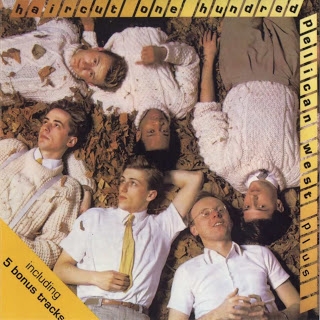
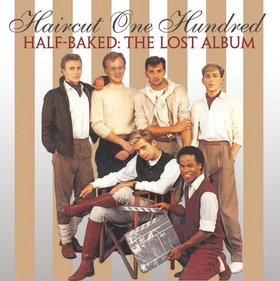
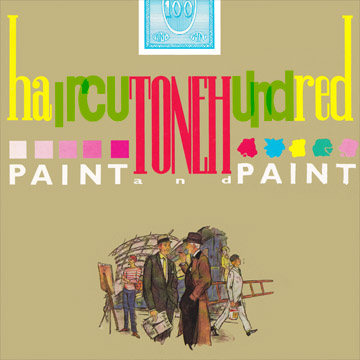
 RSS Feed
RSS Feed